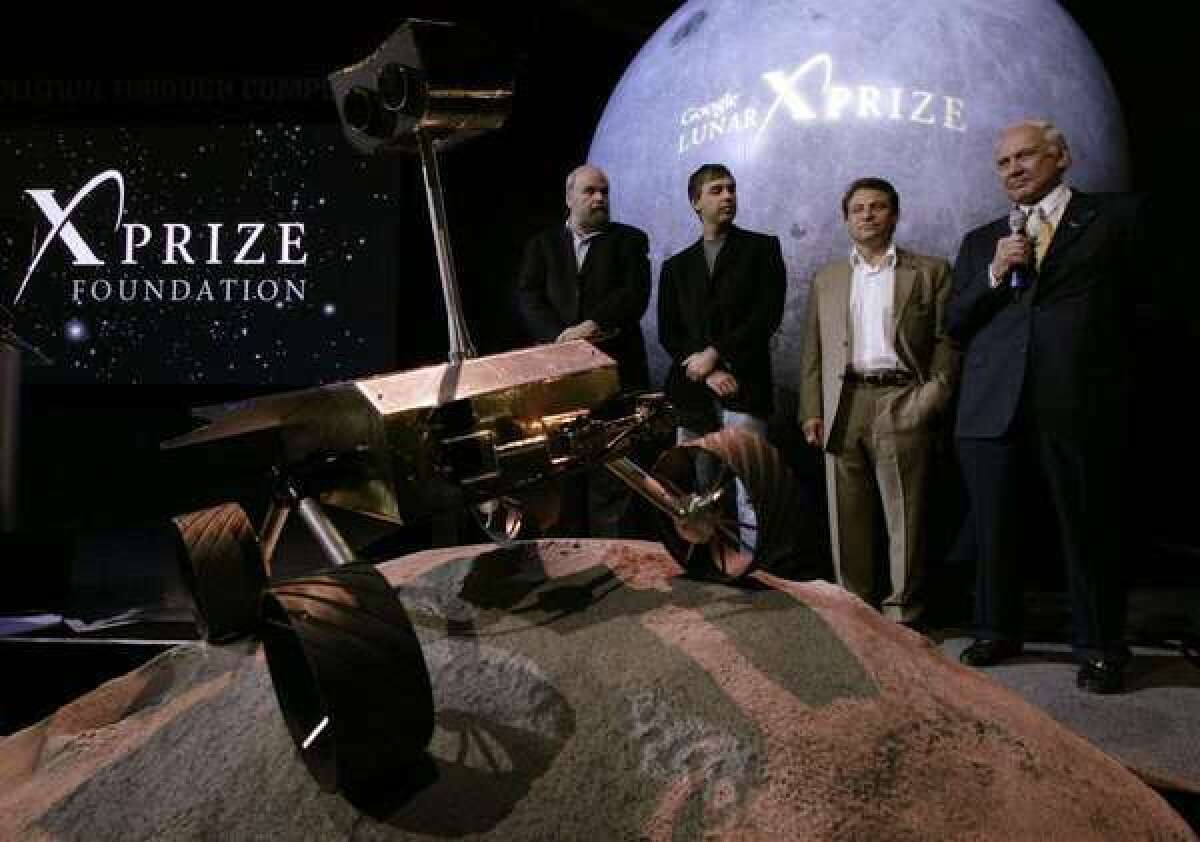Organizers cancel Archon Genomics X-Prize

Organizers of the Archon Genomics X-Prize called off their $10-million competition Thursday, just two weeks before teams were set to begin work on 100 high-quality human genome sequences, in 30 days, at a cost of less than $10,000 per genome.
Writing in the Huffington Post, X-Prize Chief Executive Peter Diamandis said that the decision was an acknowledgment that the field of genetics didn’t need the extra push of a prize competition to get inventors and scientists working on better, more affordable genome sequencing technologies.
“Genome sequencing technology is plummeting in cost and increasing in speed independent of our competition,” Diamandis wrote. “Today, companies can do this for less than $5,000 per genome, in a few days or less — and are moving quickly towards the goals we set for the prize. For this reason, we have decided to cancel an X-Prize for the first time ever.”
Harvard Medical School geneticist George Church, a leader of one of the two teams that were planning to compete, called the decision “strange.”
“Everything was ready to go,” Church told the Los Angeles Times. “There was nothing left for the teams to do and nothing left for the prize to do but to have the competition. It’s mind-boggling to me.”
Los Angeles Times: Scientific research increasingly fueled by prize money
The Archon Genomics X-Prize was announced in 2006, three years after scientists sequenced the first complete human genome. Teams in the competition would have to sequence the DNA of 100 people who had lived to be 100 — quickly, accurately and inexpensively — and scientists would then be able to mine the sequenced genomes to look for rare genes that protect against disease or promote health and longevity.
Organizers of the competition already had their DNA from 100 centenarians; they had also developed a software system to check the accuracy of the genome sequences the teams produced. But in recent months some began to question whether holding the competition would square with the prize foundation’s mission to encourage scientific work that otherwise couldn’t get support.
Having only two teams sign up to compete was seen by some as a “tepid showing,” and a sign that the contest might be “commercially unnecessary.”
In 2006, senior prize director Grant Campany said, it cost more than $10 million and took 18 months to sequence one complete genome. Today, he said, companies can get the job done in a fraction of the time, and for prices around $4,000-$5,000.
“We began to reassess: Is there really a role for X-Prize in this space?” he said. “We concluded the market itself provides. $10 million is not incentivizing anything that the market isn’t at this point.”
Church said he found that reasoning hard to understand — especially so late in the game.
“I think they underestimate how big an impact they had in dangling $10 million in front of a group like ours, where that amount of money is a big deal,” he said. “Why call off the World Series when there’s no rain and everybody’s healthy, and the stadium is full of people?”
Campany said work wouldn’t end with the cancellation of this particular contest: The foundation is talking with partners to go ahead and sequence the centenarians’ DNA and make it public. There are also plans to make broader use of the validation software the contest devised, he added.
In the meantime, the prize foundation’s Google Lunar X-Prize, Qualcomm Tricorder X-Prize and Nokia Sensing X-Challenge are ongoing.
ALSO:
Scientific research increasingly fueled by prize money
Harvard geneticist George Church, cloning and that Neanderthal baby







